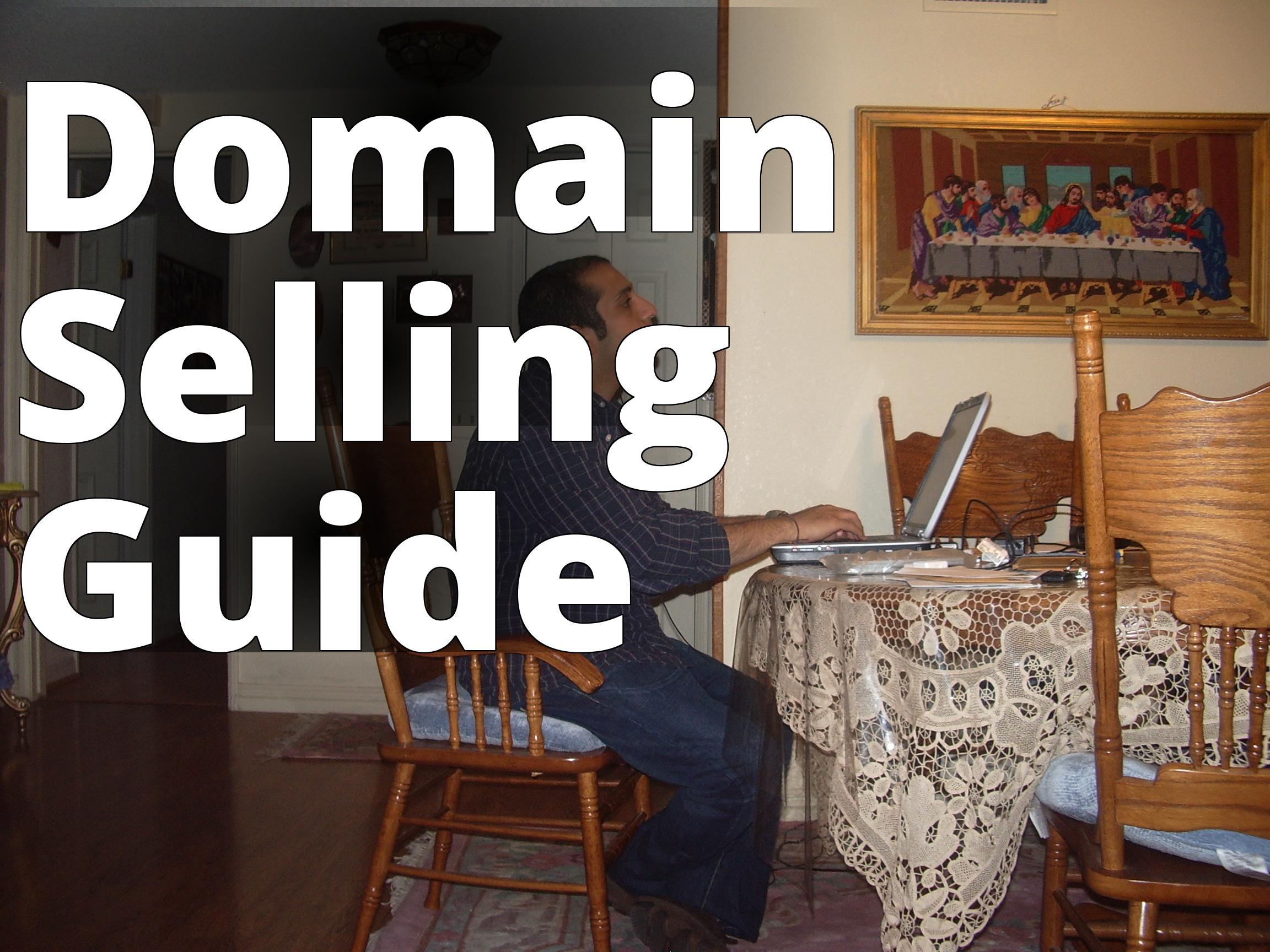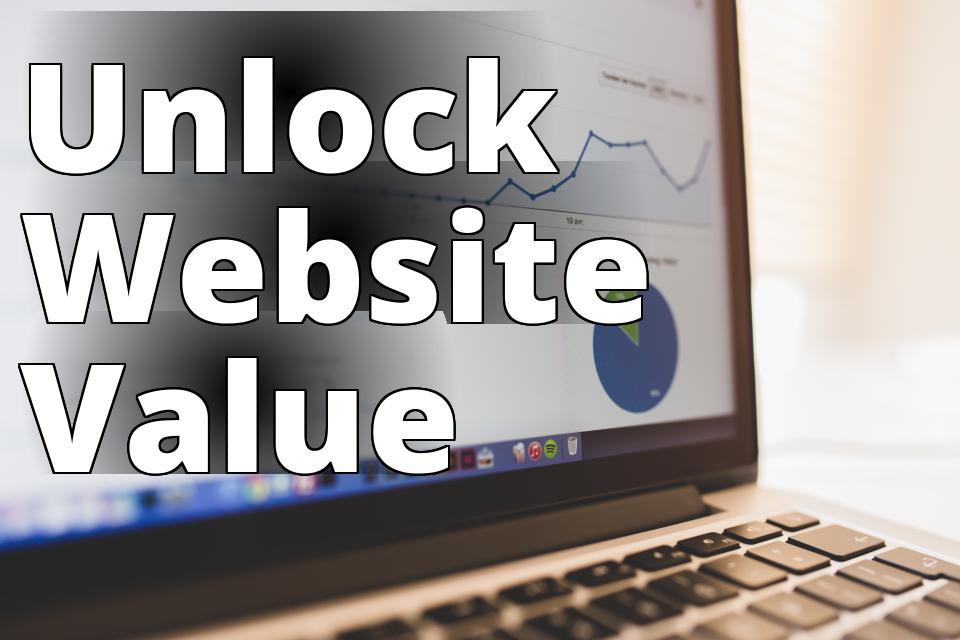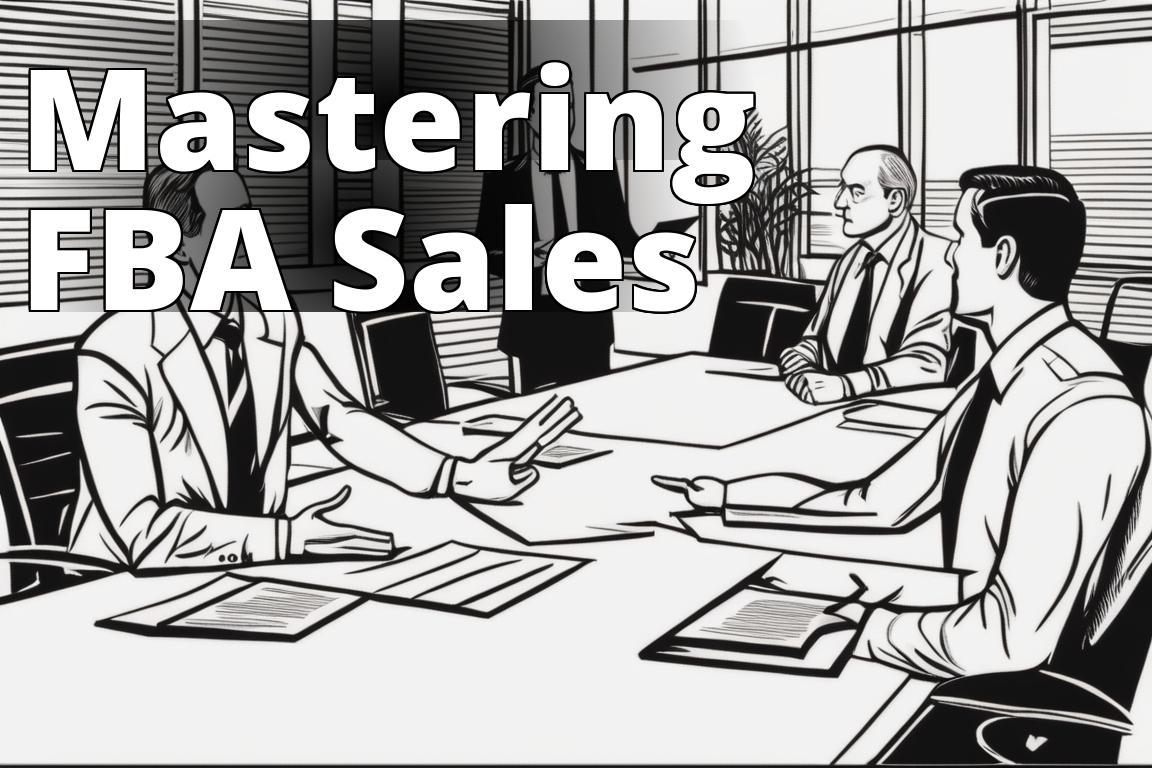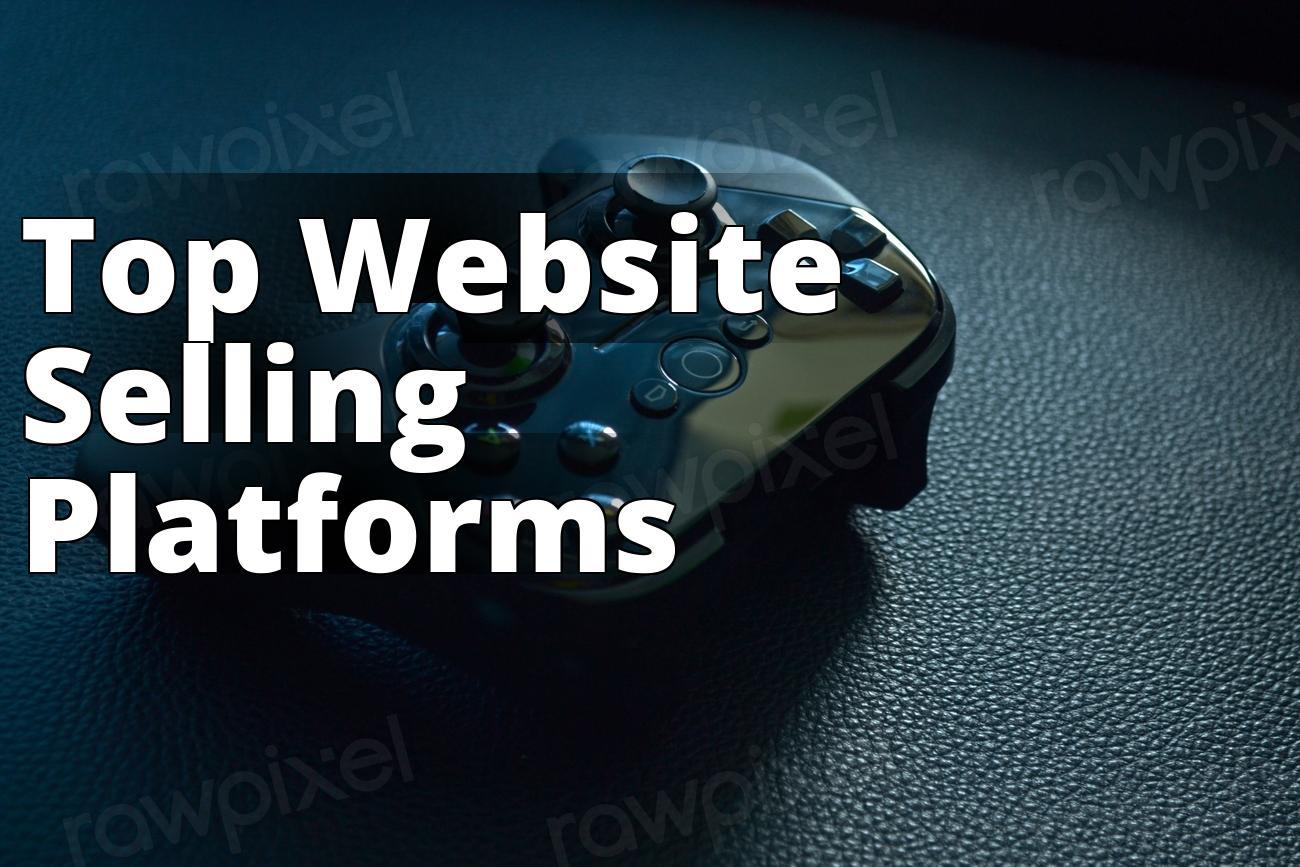In the digital real estate market, selling a website is akin to selling a thriving metropolis. It’s not just a transaction; it’s a transfer of a living, breathing ecosystem that you’ve nurtured and grown. As we traverse the landscape of digital sales in 2024, the process of selling a website has become a fine artrequiring not only strategic acumen but also a touch of finesse.
How to Sell a Website Online
Learn how to sell a website online:
– Get a valuation for your website.
– Find a website broker.
– Prepare and list your website for sale.
1. Get a valuation for your website
Before diving into the vast ocean of website sales, you need to know the worth of your digital asset. Valuing a website is a nuanced affair that goes beyond mere traffic and revenue figures. It’s a deep dive into your site’s unique value proposition, its market position, and its growth potential. I recall the time I sold my first content website; I was dazzled by the six-month revenue multiplier. But let me tell you, times have changed. Today, savvy buyers look for value in stability, niche authority, and scalability.
To get a reliable valuation, use industry-standard tools and consult with professionals who understand the intricacies of website worth. These experts will evaluate your site based on various metrics, including but not limited to monthly profits, traffic sources, domain authority, content quality, and operational complexities.
Insider Tip: Don’t just rely on automated valuation tools. A personalized assessment from a seasoned broker can uncover the intangible assets that may significantly increase your website’s value.

2. Find a website broker
The decision to enlist a broker can be the cornerstone of your sale. A competent broker acts as a bridge between you and potential buyers, navigating the complexities of the market with ease. They not only bring a wealth of experience but also an established network of buyers who trust their judgment.
When I enlisted a broker for selling my second online venture, it was a game-changer. The broker’s understanding of market trends and negotiation skills were instrumental in securing a deal 20% higher than my initial expectations. To find a reputable broker, look for a track record of successful sales, transparent communication, and a robust due diligence process. Trust me, their commission is a small price to pay for the peace of mind and the potential upside they bring to the table.
Insider Tip: Opt for a broker who specializes in your website’s niche to leverage their targeted expertise and buyer network.

3. Prepare your website for sale
Preparation is key, and when it comes to selling your digital asset, it’s what separates a good sale from a great one. Ensure your financials are immaculate, your traffic sources diversified, and your operations streamlined. Buyers are looking for turnkey solutions, not projects they need to overhaul.
Streamlining my e-commerce site before the sale involved pruning underperforming products, optimizing for SEO, and setting up a solid customer service protocol. These steps not only polished my site’s appeal but also boosted its performance in the lead-up to the sale. Think of preparing your website for sale as staging a home; you want it to be at its most inviting, showcasing its full potential.
Insider Tip: Conduct a pre-sale audit to identify and address any potential red flags that could deter buyers or devalue your site.

4. List your website for sale
Listing your website is not about casting the widest net; it’s about targeting the right pool of buyers. Whether you choose a marketplace, a private listing, or a broker’s network, the platform should align with your site’s caliber and the buyer demographic you aim to attract.
From my experience, crafting a compelling listing is about storytelling. Highlight your website’s journey, its strengths, and its untapped opportunities. Provide thorough and transparent data to build trust early on. Remember, a well-presented listing can do more than attract buyers; it can spark a bidding war.
Insider Tip: Create a comprehensive information packet that answers potential buyers’ questions before they even ask them.

5. Negotiate the sale of your website
Negotiation is where the rubber meets the road. It’s a delicate dance of give and take, requiring both confidence in your website’s value and the flexibility to reach a mutually beneficial agreement. As someone who’s been on both sides of the table, I can attest to the importance of understanding the buyer’s perspective.
To negotiate effectively, arm yourself with data, anticipate counteroffers, and know your non-negotiables. It’s also essential to maintain open communication and build rapportafter all, a successful sale is about more than just numbers; it’s about people.
Insider Tip: Always have a counteroffer ready and be prepared to justify it with concrete data and projections.

6. Complete the sale of your website
Crossing the finish line involves a meticulous transfer of assets and ensuring all legalities are addressed. It’s prudent to involve legal counsel to draft or review the sale agreement, ensuring clarity on terms and obligations.
When I closed the sale of my third website, the escrow service provided a secure transaction environment that protected both parties. Make sure all accounts, domain names, and third-party services are transferred accurately, and provide the buyer with a transition period for any necessary hand-holding.
Insider Tip: Use a reputable escrow service to handle the financial transaction, adding a layer of security and professionalism to the sale.

Real-Life Experience: Selling My Website on Flippa
I recently decided to sell my website and chose to use Flippa as my platform. I went through the process of getting a valuation for my website, finding a website broker, preparing my website for sale, listing it on Flippa, negotiating with potential buyers, and finally completing the sale. It was a learning experience, and I encountered some challenges along the way.
Understanding the Valuation Process
When I started the process, I was unsure about how to accurately value my website. However, I found that Flippa provided useful tools and resources to help me understand the factors that contribute to the valuation of a website.
Navigating the Listing Process on Flippa
Listing my website on Flippa was a straightforward process. The platform’s interface was user-friendly, and I was able to provide all the necessary information about my website to attract potential buyers.
Engaging with Potential Buyers
I received several inquiries from potential buyers and had to negotiate the sale price. Flippa’s messaging system made it easy to communicate with interested parties and negotiate the terms of the sale.
Completing the Sale
After reaching an agreement with a buyer, I followed Flippa’s guidance to complete the sale securely and transfer the ownership of the website.
My experience with selling my website on Flippa was positive, and I was able to successfully complete the sale with the help of the platform’s tools and resources.
How to sell a website on Flippa
Flippa is a hotbed for website sales, providing a platform that’s both accessible and bustling with activity. Selling on Flippa requires a strategic approach, emphasizing your website’s unique selling points and leveraging the auction environment to your advantage.
When I sold a niche blog on Flippa, I found that an attractive reserve price and a well-crafted description resulted in a robust bidding war. Be responsive to inquiries and provide verifiable proof of your claims to instill confidence in potential buyers.
Insider Tip: Use Flippa’s promotional features to increase visibility and attract serious buyers.
How to sell a website on Shopify Exchange
Shopify Exchange is the marketplace for e-commerce sites, and selling here means reaching a buyer base looking specifically for what you have to offer. When I listed my drop-shipping business on Shopify Exchange, I focused on solid revenue proof and the scalability of the operation.
Complete transparency about your sales, traffic, and operational processes is crucial to gaining buyer trust on this platform. Remember, most buyers here are looking for a smooth transition with minimal disruption to ongoing operations.
Insider Tip: Highlight the ease of management and potential for expansion to appeal to the entrepreneurial aspirations of buyers on Shopify Exchange.
How to sell a website on Empire Flippers
Empire Flippers stands out for its curated approach to website sales. Their vetting process means that when you list your site here, it’s among a select group of quality digital assets. Having sold a portfolio of content sites through Empire Flippers, I can vouch for their thoroughness and professionalism.
To succeed on this platform, ensure your website meets their standards and be prepared for a rigorous due diligence process. The upside is that you’ll be engaging with buyers who are serious and ready to invest.
Insider Tip: Leverage Empire Flippers valuation tool and their teams expertise to position your site optimally in their marketplace.
How to sell a website on FE International
FE International is synonymous with bespoke brokerage services, catering to high-caliber websites and discerning buyers. Selling through FE International is about leveraging their expertise in reaching a global audience and closing deals with precision.
Their process is hands-on, and they excel at crafting narratives around your website that resonate with investors looking for stable, high-yield opportunities. When I engaged them for the sale of my SaaS business, their strategic marketing and negotiation skills were indispensable.
Insider Tip: Take advantage of FE Internationals extensive network by ensuring your business is in peak condition to attract top-tier investors.
How to sell a website on SideProjectors
SideProjectors is the go-to for side projects and startups. The community here is vibrant and full of entrepreneurs looking for their next project. Selling on this platform means tapping into a pool of passionate individuals ready to take over and scale a promising venture.
Having bought a project from SideProjectors myself, I know firsthand that a compelling story and clear growth potential are key to drawing attention in this energetic marketplace.
Insider Tip: Showcase the passion behind your project and its potential trajectory to captivate SideProjectors’ entrepreneurial audience.
How to sell a website on WebsiteBroker
WebsiteBroker is a straightforward and efficient platform for listing and selling websites. Its no-frills approach appeals to both sellers and buyers who prefer a simple, direct transaction process. When I listed my first affiliate site here, the clarity and speed of the process were what stood out.
On WebsiteBroker, its crucial to have all your documentation in order and be ready for swift transactions, as buyers tend to make decisions quickly on this platform.
Insider Tip: Ensure your listing is concise and packed with all the necessary information for a buyer to make a quick decision.
In conclusion, selling a website in 2024 is about understanding the landscape, knowing your asset’s worth, and choosing the right platform and approach for your sale. It’s a journey that requires preparation, strategy, and a bit of storytelling finesse. By following these steps and leveraging the insights shared, you’ll be well on your way to navigating the sale of your website with confidence and success. Remember, at the heart of every transaction is a story of growth, ambition, and the transfer of a digital legacy. Make sure yours is one worth telling.







